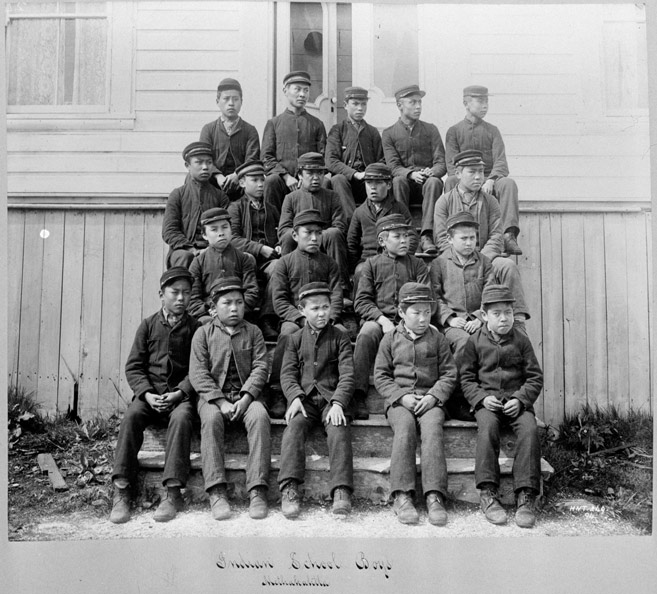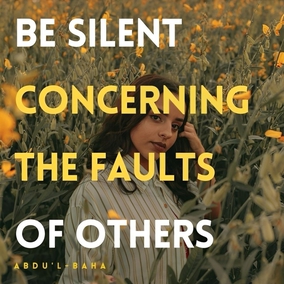The views expressed in our content reflect individual perspectives and do not represent the authoritative views of the Baha'i Faith.
The path to guidance is one of love and compassion, not of force and coercion. – The Bab, Selections from the Writings of the Bab, p. 77.
The brutal business of coercing people to believe differently has a long and ugly history.
Forced conversions, under the pain of death, have happened to–and been perpetrated by–Hindus, Buddhists, Jews, Christians, Muslims and even atheists for centuries. We hear about it today when fundamentalist militants forcibly convert captives to their ideology–as has happened with Boko Haram in Nigeria recently–but the despicable practice of forced conversion has been around forever.
For example: the Roman Emperor Theodosius I issued this forced-conversion-to-Christianity decree to all Romans in 392 AD:
It is Our will that all the peoples who are ruled by the administration of Our Clemency shall practice that religion which the divine Peter the Apostle transmitted to the Romans….The rest, whom We adjudge demented and insane, shall sustain the infamy of heretical dogmas, their meeting places shall not receive the name of churches, and they shall be smitten first by divine vengeance and secondly by the retribution of Our own initiative.
In 1201 AD, the Pope formally allowed forcible conversion, by torture, intimidation and threat of death, as a completely acceptable Catholic practice. The Spanish and Goa Inquisitions during the Dark Ages tortured and forcibly converted Hindus, Muslims and Jews to Christianity. Jewish history has many accounts of forced conversion, as does Hindu and Buddhist history, even in modern times. A wide variety of governments and clergy have often used legal means to forcibly convert entire populations, at the same time destroying places of worship, holy books and religious symbols.

One of the worst recent examples of forcible conversion occurred in North America during the 19th and 20th centuries, when the U.S. and Canadian governments paid Christian religious societies to actually forcibly abduct indigenous Native American children living on Indian reservations, strip them of their culture and their language, then require them to reject their native beliefs and adopt Christianity as their belief system. This policy of cultural genocide, implemented in the U.S. by the Bureau of Indian Affairs, also resulted in the construction of hundreds of boarding schools to forcibly remove, assimilate and convert entire generations of Indian children.
Happily, many parts of the world have begun to make some progress since then.
Article 18 of the 1947 Universal Declaration of Human Rights states:
Everyone has the right to freedom of thought, conscience and religion; this right includes freedom to change his religion or belief, and freedom, either alone or in community with others and in public or private, to manifest his religion or belief in teaching, practice, worship and observance.
The United Nations Commission on Human Rights has also officially proclaimed that a person’s choice of religion, or lack of one, is a legally-protected human right:
…the freedom to ’have or to adopt’ a religion or belief necessarily entails the freedom to choose a religion or belief, including the right to replace one’s current religion or belief with another or to adopt atheistic views… Article 18.2 bars coercion that would impair the right to have or adopt a religion or belief, including the use of threat of physical force or penal sanctions to compel believers or non-believers to adhere to their religious beliefs and congregations, to recant their religion or belief or to convert.
Today we see this fundamental human right—the freedom to believe—threatened in many places by religious, political and cultural zealots. Baha’is believe that this coercive zealotry must stop, on a societal and an individual level, in every culture and every land:
Let us therefore be humble, without prejudices, preferring others’ good to our own! Let us never say, “I am a believer but he is an infidel”, “I am near to God, whilst he is an outcast.” We can never know what will be the final judgment! Therefore let us help all who are in need of any kind of assistance.
Let us teach the ignorant, and take care of the young child until he grows to maturity. When we find a person fallen into the depths of misery or sin we must be kind to him, take him by the hand, help him to regain his footing, his strength; we must guide him with love and tenderness, treat him as a friend not as an enemy. We have no right to look upon any of our fellow-mortals as evil. – Abdu’l-Baha, Paris Talks, p. 149.
You May Also Like
Comments

















Aboriginal children.
2) Residential schools constituted an assault on
Aboriginal families.
3) Residential schools constituted an assault on
Aboriginal culture.
4) Residential schools constituted an assault on selfgoverning
and self-sustaining ...Aboriginal nations.
5) The impacts of the residential school system were
immediate, and have been ongoing since the earliest
years of the schools.
6) Canadians have been denied a full and proper
education as to the nature of Aboriginal societies, and
the history of the relationship between Aboriginal and
non-Aboriginal peoples.
Something to reflection on.